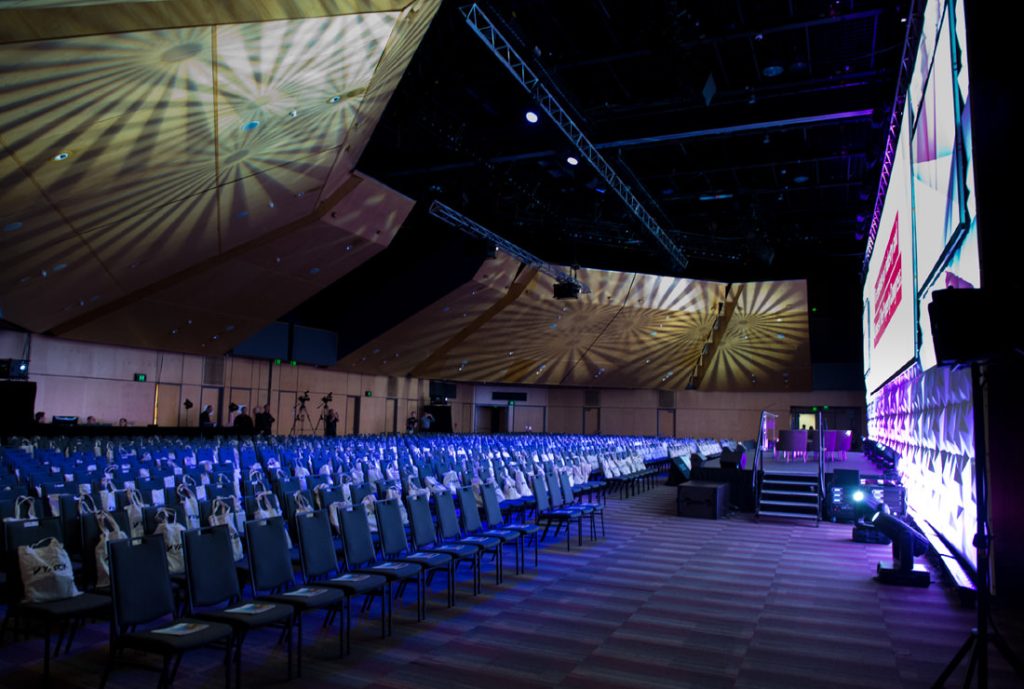Regardless of whether you’re an experienced event planner or a first-timer, coordinating an event requires meticulous planning.
With so many things to consider, it’s easy to overlook essential tasks.
We’ve developed this comprehensive conference checklist to help you create a seamless event planning process. Keep it handy and use it as a reference guide to ensure absolutely everything has been considered for the big day.
At least 12 months pre-event:
1. Establish a primary event objective
What is the primary purpose of your conference? It might be to launch a new product, share knowledge with others or boost your organisation’s profile.
Whatever it is, it’s important to pinpoint your objectives in order to develop a clear path for achieving them.
2. Establish success metrics
This is not so much why you’re holding an event but more how you will know it has been successful. For instance:
- How many attendees do you need?
- How many sponsors would you like to attract?
- How much profit would you like to make?
- Which particular guests or speakers would you like to attend?
3. Determine the general plan for your event
In order to run a successful conference, figure out exactly what needs to be organised and which equipment or services will be required. This could include:
- What date or time of year will be most appropriate?
- What location will work best for your event?
- How much space / what type of venue will you need?
- What kind of audio-visual equipment should you use?
- How will you promote your event?
- How much will all these things cost?
4. Identify your event budget
Once you’ve worked out how much your ideal conference will cost, it’s time to assess your actual financial position and whether including all preferred elements will fit in your budget.
If so, great! Now we can get planning.
If not, it’s time to get creative with ways to deliver a similar effect at a more efficient cost.
5. Conduct venue site assessments
You might have a particular venue or location in mind, and that’s great! However, it’s important not to lock anything in until you’ve completed a comprehensive site assessment to ensure you’ll have access to everything your event needs.
When visiting your potential site, some things to consider include:
- Will it have the capacity for your expected number of guests considering your staging requirements and any trade exhibition elements?
- Appropriate proximity to accommodation and transportation options?
- Does it have the right infrastructure for your event e.g. loading dock access, reliable power, high speed internet, rigging points for AV?
- Can they deliver your catering requirements to the standard you expect and within your allocated budget?
- How will your AV needs be met and does the venue have any restrictive AV policies that could affect your event e.g. noise limit levels, outside supplier lockouts?
- Does the venue offer commercial terms that are acceptable to you e.g. deposit requirements, attrition clauses, cancellation terms?
6. Attraction of speakers
If your conference doesn’t require speakers, feel free to skip this step. But if the success of your event hinges on securing the right speakers, think about:
- Who would your audience be excited to hear from?
- Who would be a good fit for your event?
- How can you encourage them to get on board?
- What is your budget for speakers?
7. Develop your marketing plan
Marketing your event is just as important as the event itself. If not for marketing, how else would people know that your conference exists?
To reach your target audience, consider:
- Developing a website or landing page
- Email marketing to your database
- Collaborative email marketing to someone else’s database
- Social media advertising
- Google advertising
- Advertising in industry publications
8. Search for sponsors
Sponsors can go a long way towards elevating an event. They can also help you fill financial gaps.
Things to consider when developing your sponsorship prospectus include:
- What kind of exposure and value can you offer e.g. how many delegates do you expect to attend, what are their roles and areas of responsibility, are they decision makers or influencers within their organisations?
- Which businesses have sponsored similar events?
- Which sponsors are likely to partner with you and who would your preferred sponsor be?
- Which businesses fit with your organisation’s values?
- What is the current market rate for similar sponsorship?
9. Develop your program
Development of a program is a key element of any event. Of course, this may change throughout the final planning and execution phases of your event as speakers drop in or out, but it’s important to have a basic structure to work from as your program is the justification for delegates to register their attendance to your event.
For this, think about:
- How long will your conference run for?
- Your program format e.g. will you run concurrent sessions with multiple speakers, a single plenary room, or a combination of both?
- When and where will different speakers present? Consider the sessions after lunch and towards the end of the day where your guests’ attention may be fading – which speakers will be the best fit to keep delegates engaged?
- Who will emcee the event and introduce speakers?
- Do you need to factor in time for sponsor messages?
At least 4-6 months pre-event:
10. Confirm your venue & meeting spaces
11. Confirm your speakers and your event program
12. Finalise your event budget including sponsorship and registration revenue
13. Open registration and ‘go live’
At least 2-3 months pre-event:
15. Send reminders to guests and sponsors
16. Increase promotions to boost delegate registrations
17. Regularly update your program with any changes
At least 1-2 weeks pre-event:
18. Confirm attendee numbers for venue & catering
19. Develop event run sheets detailing your requirements for AV, catering, room set up, speakers and sponsors
20. Publish your final program
If you need a professional hand coordinating any or all aspects of your event, let us take care of the leg work! Con-sol offer comprehensive event management services, including audio-visual solutions, to ensure that everything runs smoothly on the day of your conference. Chat with our team to learn more about our event management services.




